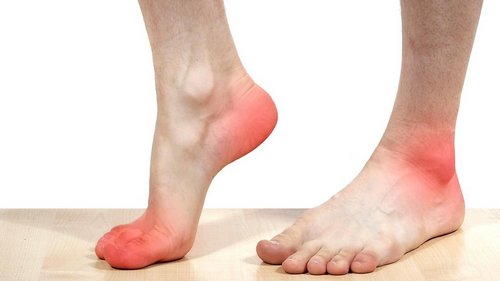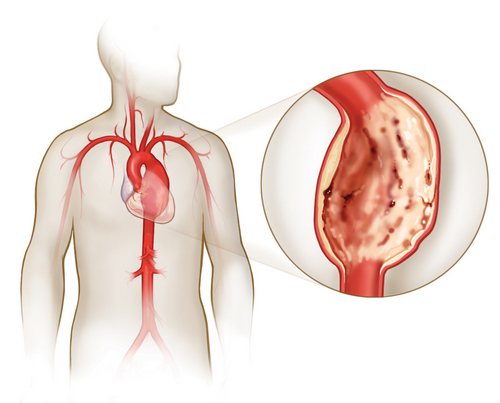Researchers at the Institute of Clinical Cardiology have placed rabbits in restrictive cells (the size of an animal’s body). In this state, the animals were 70 days.
Microscopic examination of the heart muscle of rabbits after being in tight cages showed a terrifying picture. A large number of contractile fibers of the heart simply atrophied. Draw your own conclusions. Be sure to include foods rich in potassium and magnesium in your diet. Grapes, dried apricots, bananas, beans – the best helpers for the heart.
The angioprotectors that protect the vessels from destruction should be prescribed by a cardiologist. Among them are the fruits of hawthorn and dihydroquercetin.
Possible lifelong administration of cardiomagnyl. High doses of vitamin C help the vessels. Green and mint, not black tea, are good for drinking. This drink will help to preserve not only the youth of the heart and blood vessels, but also the skin. From youth, it is necessary to take care of such an important organ as the heart, refusing black coffee, carbonated sugary drinks.
- Bad heredity.
- Age.
- High blood glucose during pregnancy.
- Stress.
- Smoking.
- Excess weight.
- Spicy and fatty foods.
- Hypodynamia – occurs if a person walks less than 2 km per day.
The most common heart disease
Angina pectoris. Its characteristic feature is constricting pain behind the sternum.
Myocardial infarction. With this disease, part of the myocardium dies. It manifests itself with acute, unbearable pain in the heart.
Coronary heart disease often precedes heart attack. It occurs when the heart muscle receives little oxygen.

Interesting to know
During a scientific experiment conducted by the American Nutrition Center, a powerful antioxidant, anthocyanin, was found in blueberries, which reduces the risk of heart disease and heart attacks. They are also rich in black currants and red grapes.
Let the dried fruit always be on the table, including prunes, raisins, and apple drying. Cook compote from them. Do not give up porridge and fish. You can’t eat eggs every day. Chocolate is harmful, you can eat a maximum of a couple of pieces a day. Rosehip infusion is useful – it has a lot of vitamin C. Kiwi is a good source of this vitamin in winter.
How much coffee can I drink? A maximum of a couple of times a week. If you can’t refuse, drink with milk and without caffeine. But a glass of red wine does not hurt 4 times a week. Season all dishes with vegetable oil. Discard the cream. Do not eat pork. Reduce the amount of salt. Useful olives, whole grains, green salad, blueberries, tuna, apples, nuts. Replace sausage with white meat. Do not buy pastries and crackers, give up margarine. As a snack, yogurt and a handful of almonds and cashews are suitable.

Other useful products:
- Ginger.
- Garlic.
- Sorrel.
- New potatoes.
- Tomatoes
- Soya.
- Pumpkin.
Interesting to know
Want to have a healthy heart? Eat Avocados! It contains vitamins A and E. In addition to the positive effect on blood vessels and the heart, they will suspend the aging process of the skin. Do a cardiogram 2-3 times a year if you are at risk. Once a year, be sure to undergo an ultrasound of the heart – echo-KG.
So that the heart does not hurt, do not keep the emotions inside. If you want to laugh – laugh, if you cry – cry. Be open to people as much as you can. Find a good environment you can trust.
Atypical signs of heart disease
You may be referred to a cardiologist if you have these symptoms:
- Weakness.
- Lower back pain.
- Anxiety.
- Swelling of the legs and feet, which can also occur with problems with the kidneys or veins in the legs.
Why did we list low back pain among the symptoms? The fact is that quite often heart pain can be given to the back, neck or arm. Particular attention to the heart is necessary for women after 45 years. With the onset of menopause, the risk of cardiovascular disease rises two to three times. This is due to the fact that the level of estrogen is sharply reduced. Urgently call an ambulance if you feel shortness of breath and pain behind the sternum. If you have excess weight, the load on the heart increases, the blood becomes thick. Therefore, it is best to reset it by contacting a trainer and nutritionist.
Add olives to your diet and your blood will become less thick. It is because of the love of olives that Italians have low heart attack statistics. It is enough to eat 6-8 pieces a day. And the British advise everyone who wants to keep their heart healthy to eat oatmeal – a source of potassium. Add banana to it and get a delicious breakfast.
Surviving a difficult period in life will help yoga, pool, meditation or a warm bath. If heart problems have already begun, it is better to walk more. In summer, choose shaded parks for walks and refuse to use public transport if the distance allows it. For heart health, walking is enough 10-15 minutes a day. Jogging reduces the risk of heart attack by one and a half times.
Control the amount of fluid you drink. You can not drink more than 2 liters of water per day, if the first symptoms of distress have already appeared, the load on the heart muscle will be too much.
You need to sleep at least 8 hours a day. The most useful dream is from 23.00 to 1.00. Sleeping less than 4 hours a day for a long time guarantees heart problems. The advice may seem strange, but you can brush your teeth even more often 2 times a day. The better oral hygiene, the lower the risk of bacteria being transferred to the heart muscle.
About 70% of myocardial infarction cases are associated with an abnormal lifestyle. The figure is impressive. 50% of women who have had a heart attack do not experience chest pain. They are very tired in some cases may be the only sign. In men, the picture of myocardial infarction is most often typical. In Ukraine, heart disease affects more than 10 million people.
The mortality rate from them is the highest among all possible causes – 66%. 20% of people who had a heart attack did not suspect heart problems. After a heart attack, doctors recommend skiing in the winter and swimming in the summer. Such a load will be beneficial not only to the heart, but also to the health of the joints.



